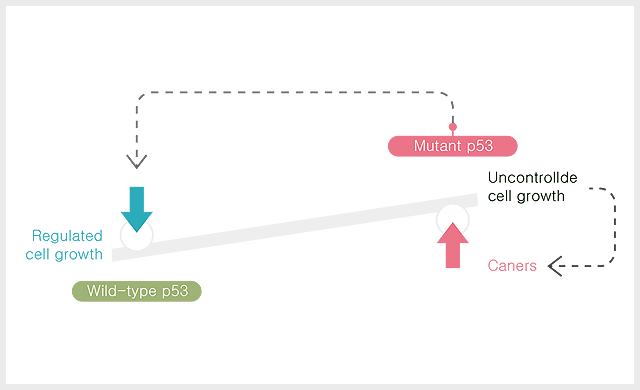와이즈만연구소와 ‘P53 유전자 활용
타깃 항암 치료제 기술 이전
이스라엘 예다와 R&D 합작법인 설립
바이오리더스,
와이즈만 연구소 'P53 타깃
항암제' 도입
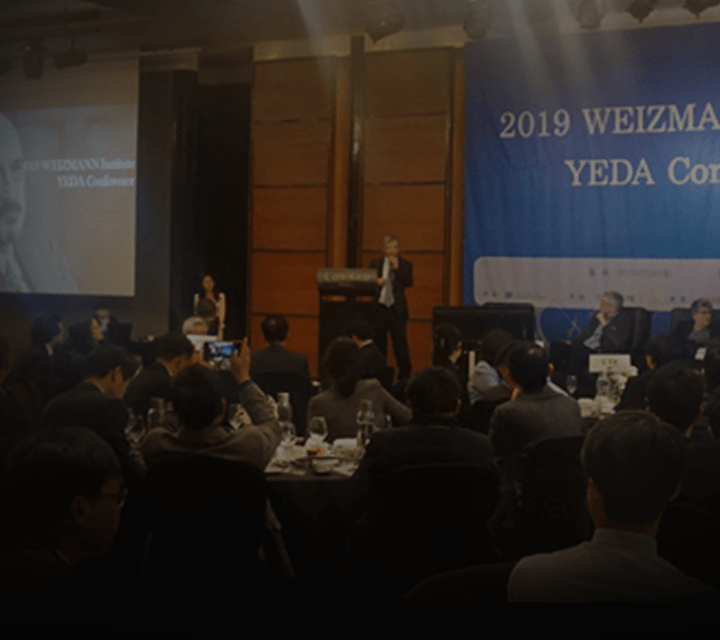
-
01
P53 유전자 활용 타깃 항암 치료제 기술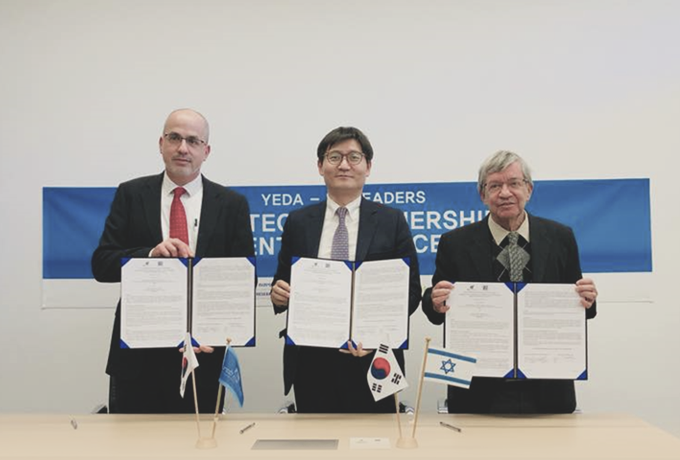
이전 이스라엘 예다와 R&D 합작법인 설립 -
02
Inactivation of p53 in Tumors Confers a Strong Selective Advantage in the Carcinogenic Process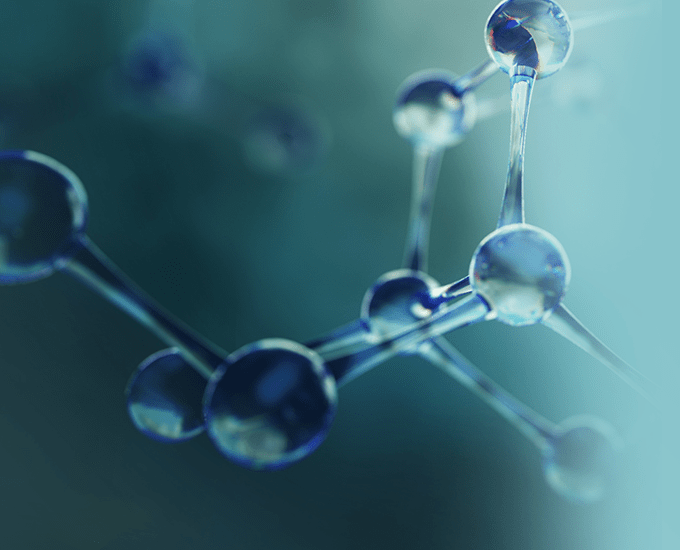 Eliminating p53 function may be a prerequisite for tumor survival 1-3Preclinical work has shown that the absence of p53 function is a continuous resquirement for the maintenance of established tumorsLoss of functioning p53 promotes the oncogenic phenotype 4Cellular insults trigger phosphorylation of the N-terminal domain of p53 leading to conformational changes 5.6Prevention of p53 degradation, prolonged molecular half-life, accumulation of p53 at high levelsCells without normal fuctioning p53 fail to recognize and address cellular stressors/abnormalities, allowing uncontrolled replication of affected cells 4When p53 is functioning properly, oncogenic mutations are not propagated, as DNA repair activities are intact and cell cycling is tightly controlled 61. Ventuar A, Kirs DG, McLaughlin ME, et al. Nature.
Eliminating p53 function may be a prerequisite for tumor survival 1-3Preclinical work has shown that the absence of p53 function is a continuous resquirement for the maintenance of established tumorsLoss of functioning p53 promotes the oncogenic phenotype 4Cellular insults trigger phosphorylation of the N-terminal domain of p53 leading to conformational changes 5.6Prevention of p53 degradation, prolonged molecular half-life, accumulation of p53 at high levelsCells without normal fuctioning p53 fail to recognize and address cellular stressors/abnormalities, allowing uncontrolled replication of affected cells 4When p53 is functioning properly, oncogenic mutations are not propagated, as DNA repair activities are intact and cell cycling is tightly controlled 61. Ventuar A, Kirs DG, McLaughlin ME, et al. Nature.
2007; 445:661-665
2. Martins CP, Brown-Swigart L, Evan Gl. Cell.
2006;127:1323-1334.
3. Xue W, Zender L, Miething C, et al. Nature.
2001/doi:10:10.1038/nature05529.
4.Toledo F, Wahl GM. Nature Rev Cancer.
2006; 6:909-923
5. Vogelstein B, Lane D, Levine AJ. Nature.
2000;408:307-310.
6. Nag S, Qin J, Srivenugopal KS, et al. J Biomed Res,
2013;27:254-271 -
03
p53 is the Most Frequently Altered Gene in Human Cancer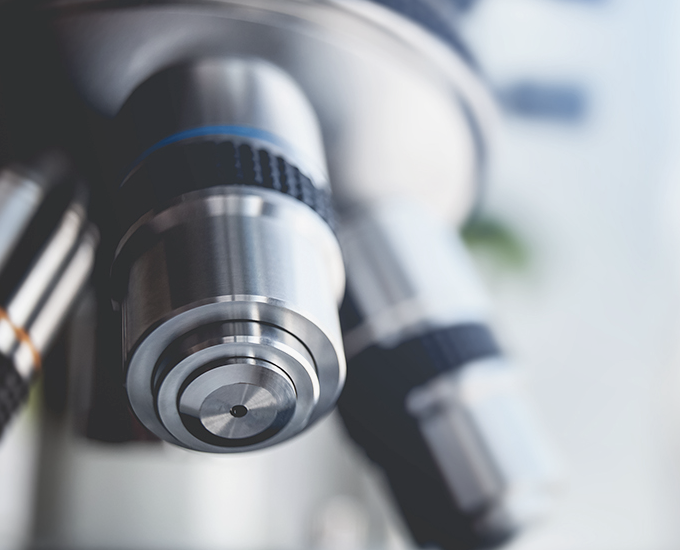 Somatic mutations in p53 have been seen in several human tumors types-p53 multations or deletions are observed in apporoximately 50% of all solid tumorsMissense multations in p53 are frequent, and can resu in gain of function changes that enhance metastatic potential and invasivenessIn many tumor types, p53 mutations have been associated with a poorer prognosis with diminished overall survival and more aggressive tumor behaviorp53 is not mutated in up to 50% of solid tumors and is generally not mutated in hematologic malignanciesIn these tumors, wild-type p53(p53wt) is most likely inactivated - inacyivation of p53 plays a critical role in development and progression of the cancer51. Toledo F, Wahl GM. Nature Rev Cancer.
Somatic mutations in p53 have been seen in several human tumors types-p53 multations or deletions are observed in apporoximately 50% of all solid tumorsMissense multations in p53 are frequent, and can resu in gain of function changes that enhance metastatic potential and invasivenessIn many tumor types, p53 mutations have been associated with a poorer prognosis with diminished overall survival and more aggressive tumor behaviorp53 is not mutated in up to 50% of solid tumors and is generally not mutated in hematologic malignanciesIn these tumors, wild-type p53(p53wt) is most likely inactivated - inacyivation of p53 plays a critical role in development and progression of the cancer51. Toledo F, Wahl GM. Nature Rev Cancer.
2006; 6:909-923
2. Eischen CM, Lozano G. Human Mutation.
2014; 35:728-737.
3. Ventuar A, Kirs DG, McLaughlin ME, et al. Nature.
2007; 445:661-665
4. VuBT, Vassilev LT. Curr Topics Micrbio Immunol.
2011;348:151-172.
5. Pal S, Bhattacharjee A, Ali A, et al, J Inflammation.
2014;11023
p53 is the Most Frequently Altered Gene in Human Cancer
Somatic mutations in p53 have been seen in several human tumors types-p53 multations or deletions are observed in apporoximately 50% of all solid tumors
* Arrested cell proliferation
* Death of cancer cells
* Sensitization of refractory cancers
